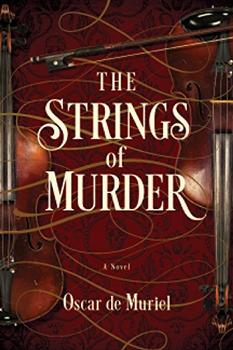Summary | Excerpt | Reviews | Beyond the book | Read-Alikes | Genres & Themes | Author Bio

In Robert Louis Stevenson's 1886 novel, The Strange Case of Dr. Jekyll and Mr. Hyde, the story ends with Dr Henry Jekyll's friends breaking down the door to the closet he has locked himself in as he writes his account of his creation of a new being out of his very self. Though penitent now, Jekyll realizes that he has been guilty of great evil in setting Hyde loose on London and permitting him to wreak havoc, abuse, and even murder. His confession asks forgiveness for what Mr. Hyde has done. Though he fears that if Hyde reappears, he will tear the confession to shreds, he feels compelled to let the world, and especially those who care for him, know how Hyde took over his personality and body to perpetrate his abominations. He fears that Hyde may "die upon the scaffold" for what crimes he may commit in the future, but "as I lay down my pen and proceed to seal up my confession, I bring the life of that unhappy Henry Jekyll to an end."
While Stevenson describes these last days through Jekyll's eyes, Daniel Levine takes us inside Edward Hyde, who sees things far differently from the man who gave him life but now denies him. Hyde uses the last four days in the closet to think back, for his own sake, on the life he's lived since being born from Dr Henry Jekyll's experiments and "cast into the body" he shares with the doctor. After Jekyll injects himself with his discovered potion, Hyde arises in this same body – that of a man who has a reputation to uphold among the learned and conscientious men with whom he socializes – but Hyde is capable of all the things the respectable Dr. Jekyll would not think of doing. Later, Hyde will, in turn, inject himself to bring the respectable doctor back into the world.
To separate his two personalities further, Jekyll buys a house on Ghyll Road for Hyde's residence and hires a maid. Levine uses the metaphor of the house to describe Hyde perfectly. The Ghyll Road house, unlike Jekyll's comfortable surroundings at the Big House, "looked dark and rundown in its sunken recess between its neighbors, like a book pushed in deeper than the others on a shelf." The dilapidated building, complete with "a disintegrating stone angel" at the top of an empty fountain, pleases Hyde. In fact, he says of it, "exhilarated, I stood clutching the rusted rail. I was home." Here Hyde finds the mirror for his own depraved soul and deteriorating self.
It is from Ghyll that Hyde returns on the days he is "released into the body," and there that he brings those whom Jekyll will later identify as his victims. However, the movement from Ghyll to the Big House, from the life of Hyde to that of Jekyll reveals, for Levine, the truth of the relationship between these two who use the same body in different ways. Thus, what later, psychoanalysts and ethicists called 'the shadow' is embodied in a separate self, symbolized here by the Frankenstein-like creation of Hyde, but, unlike Mary Shelley's monster, Jekyll creates Hyde out of his own flesh. (See Beyond the Book for further discussion of the shadow.) The one seeks out and indulges in sensual pleasure and violence, while the other builds a reputation for integrity, generosity, and goodness.
A key to Levine's retelling is what happens when readers discover compassion in the shrunken monster and coldness in the respected doctor. Who is the perpetrator here? Levine describes the struggle in the self as if they were two separate realities, even persons, only one of which can prevail without destroying both.
There's much hidden in Hyde and much also hiding in Jekyll, perhaps even from himself. And us? How many of our hidden desires and thoughts would we wish to act out and at the same time still deny? What shameful horrors appear in our dreams? In Hyde, Daniel Levine shines a light that passes through Jekyll and Hyde to fall on each of us who must question the reality of our judgments on our own lives – and what does that tell us about the judgments we so readily make about others?
![]() This review was originally published in The BookBrowse Review in April 2014, and has been updated for the
April 2015 edition.
Click here to go to this issue.
This review was originally published in The BookBrowse Review in April 2014, and has been updated for the
April 2015 edition.
Click here to go to this issue.

If you liked Hyde, try these:

by David Morrell
Published 2017
The notorious Opium-Eater returns in the sensational climax to David Morrell's acclaimed Victorian mystery trilogy.

by Oscar de Muriel
Published 2017
The brutal slaying of a violinist in his home in 1888 sparks a locked room murder mystery investigated by two diametrically opposed Edinburgh detectives.
Your guide toexceptional books
BookBrowse seeks out and recommends the best in contemporary fiction and nonfiction—books that not only engage and entertain but also deepen our understanding of ourselves and the world around us.